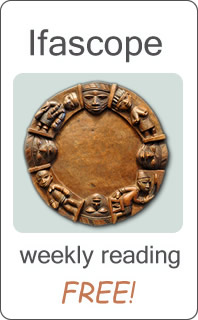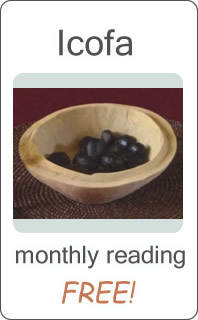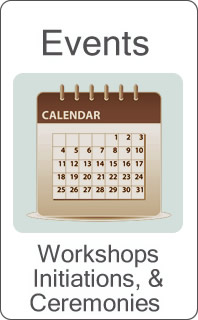How Do I Make The Transition?
 Saturday, April 4, 2015 at 10:30AM
Saturday, April 4, 2015 at 10:30AM  The hardest thing to do is to change how we think. In Ifa it is a critical factor. It is because it is a constant balancing act between the traditions of the past, and the promise for our future. Let me put this into real examples. Let's say you have the issue of how to heat your home. You can continue to pay the electric provider or the propane or gas company as you have always done. You could say: "I'm tired of these expensive bills month after month, and decide to install a fireplace as your ancestors once did. You could try solar heating. You could get ready for new Tesla battery that generates enough power to not only supply your house, but in some instances, to sell the excess capacity to the Grid.
The hardest thing to do is to change how we think. In Ifa it is a critical factor. It is because it is a constant balancing act between the traditions of the past, and the promise for our future. Let me put this into real examples. Let's say you have the issue of how to heat your home. You can continue to pay the electric provider or the propane or gas company as you have always done. You could say: "I'm tired of these expensive bills month after month, and decide to install a fireplace as your ancestors once did. You could try solar heating. You could get ready for new Tesla battery that generates enough power to not only supply your house, but in some instances, to sell the excess capacity to the Grid.
The answer of which to select is both a practical AND a moral decision. The easiest, but perhaps not the smartest thing to do, is to not burden yourself with the decision, but to continue to use method you have always utilized. But, will that change your life in even the smallest way? You should examine whether or not the power company is part of fracking, and whether you feel this is harming the planet or not. You must weigh the costs of old fashioned ways, like the fireplace, and if you want to huddle around a single space during the cold winter nights. Solar heating is clean but costly. Tesla promises a new direction, the battery has apparently been in testing in 230 houses in California, with 100 more .Tesla Stationary Batteries being placed in homes out of the state. A 10kWh battery could cost $13,000 with a 50% rebate from PG&E. The buyer who talked to the analyst purchased his unit for $1,500 down, followed by 120 monthly installments (10 years) of $15 each. I am not telling you which you should select, I am telling you need to think about it! That no decision IS a decision. The wrong one.
It is no different when you accept "Only Palm Oil will work”…or that women cannot be initiated as Ifa priests…or that gay men, lesbian and transgender individuals are somehow "less than REALLY" qualified to worship in an equal fashion. When you believe it is critical to eat on the floor for a year, wear nothing but white clothing, and be unable to get answers to the questions you know need to be answered.
All these and thousands more are critical to your happiness. To a better world. To better relationships and harmony. But each and every choice must be compared to the reality of our world, to how things have changed. If you do this, a few steps at a time, your life and the planets future can be improved.
Blessings








